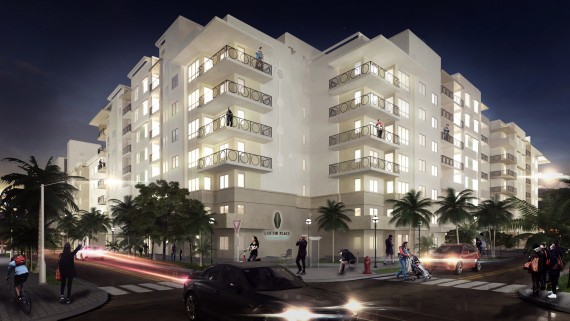Sales of apartment properties totaled a record $2.8 billion in South Florida last year, according to CBRE’s multifamily market update, as new residents flocked to the area and people continued to shift from homeownership to rentals.
Developers and other real estate professionals think the trend will continue for now, though things could get overheated in the future, especially at the top end of the market. “There’s been a lot of chatter about a bubble, but for the next two years things look fine,” Don Ginsburg, CEO of Realty Master Advisors in Fort Lauderdale, told The Real Deal.
As for the population numbers, South Florida’s population rose by 361,000, or 6.5 percent in the last five years. And Nielsen estimates the population will increase another 377,670, or 6.4 percent, over the next five years. Meanwhile, the national homeownership rate slid to 63.7 percent in the third quarter of 2015, near a 30-year low. “Those factors are fueling demand,” Ginsburg said.
But that doesn’t mean it’s a slam dunk for everyone, says Nader Salour, a principal at Cypress Realty of Florida, a multifamily developer based in Jupiter. “Developers need to be very careful both where they build and building a project with the right style,” he told TRD.
Cypress just opened the first phase of its $120 million Loftin Place apartment project at 805 North Olive Avenue in West Palm Beach. “The quality of finishes and amenities are very different at Loftin and nicer than rental projects even 10 years ago,” Salour said. That’s what people demand from a project on the northern edge of downtown West Palm Beach, he said.
The good news for multifamily developers is that people of all ages are interested in apartments — from millennials who can’t afford to buy a home yet to empty-nest baby boomers who are looking to return to urban areas. “We have people of all ages in Loftin, not just 25 to 35,” Salour said. “The universe of potential users is far greater than the last 10 to 20 years.”
Jack McCabe, CEO of McCabe Research & Consulting in Deerfield Beach, sees risk on the horizon. “If rental rates get so high that the vast majority of the population can’t afford available units, there is a chance we’re getting into bubble territory,” he told TRD. Effective rents rose 5.8 percent in Miami-Dade County last year, following a 4.8 percent increase in 2014, leaving the average rent at $1,197 a month, or $1.44 per square foot, according to CBRE.
“Probably 35 percent of renters in South Florida are paying more than 50 percent of their income, and 28 percent is a good number,” McCabe said. “The vast majority of new units are Class A. Maybe 5 percent are affordable units.” So the top end may be turning into a bubble, he said. “Low-priced units if anything are underdeveloped.”
Costs are a problem, McCabe and others say. Land costs, construction material costs and labor costs are soaring, they say. That makes developers reluctant to take on affordable housing projects. Salour feels the problem first hand. “Usually the rule of the jungle applies, and developers won’t overpay” for a property, he said. “If developers do overpay, then they are forced to build expensive projects, and the market may not be there for that price.”
